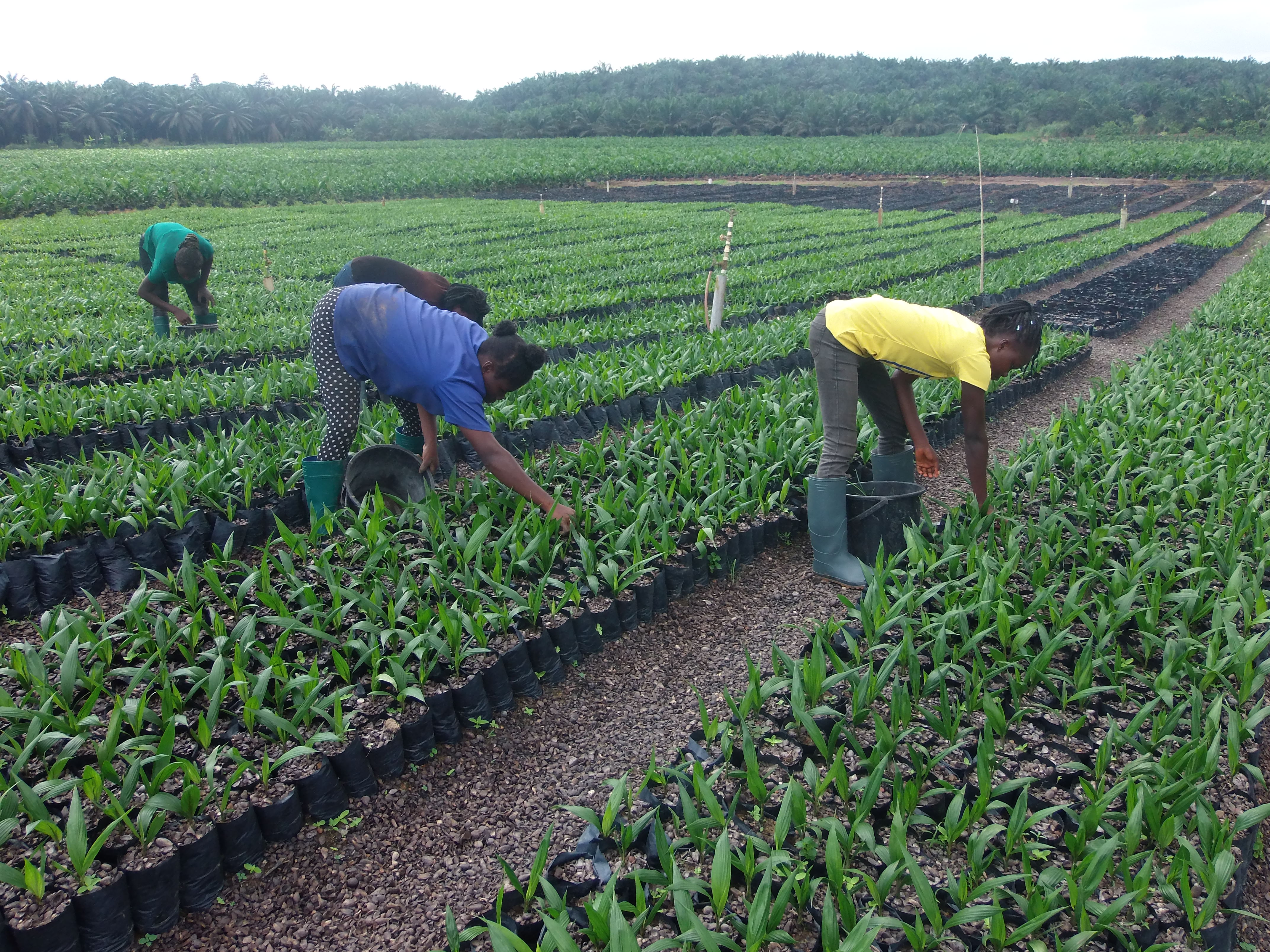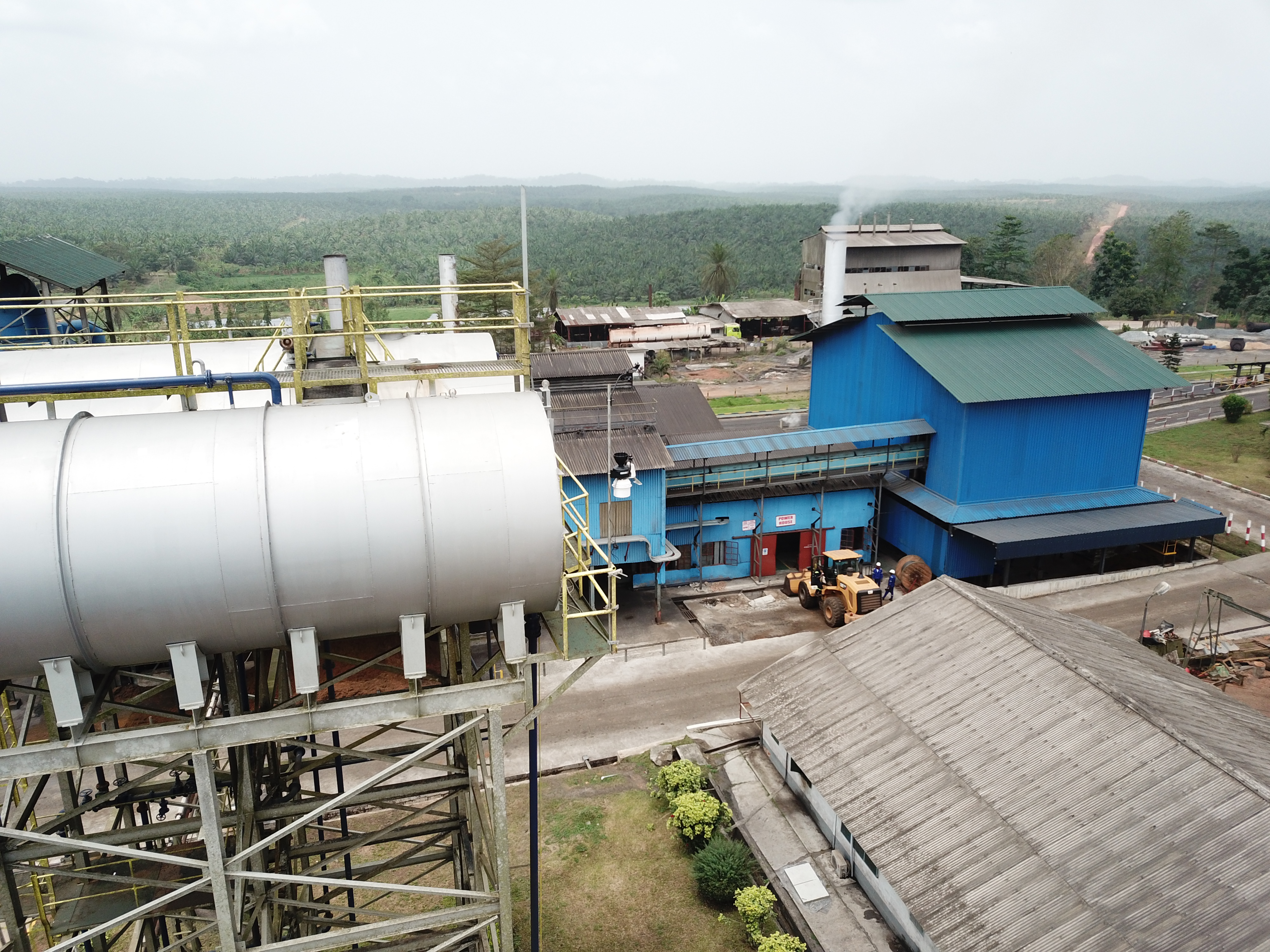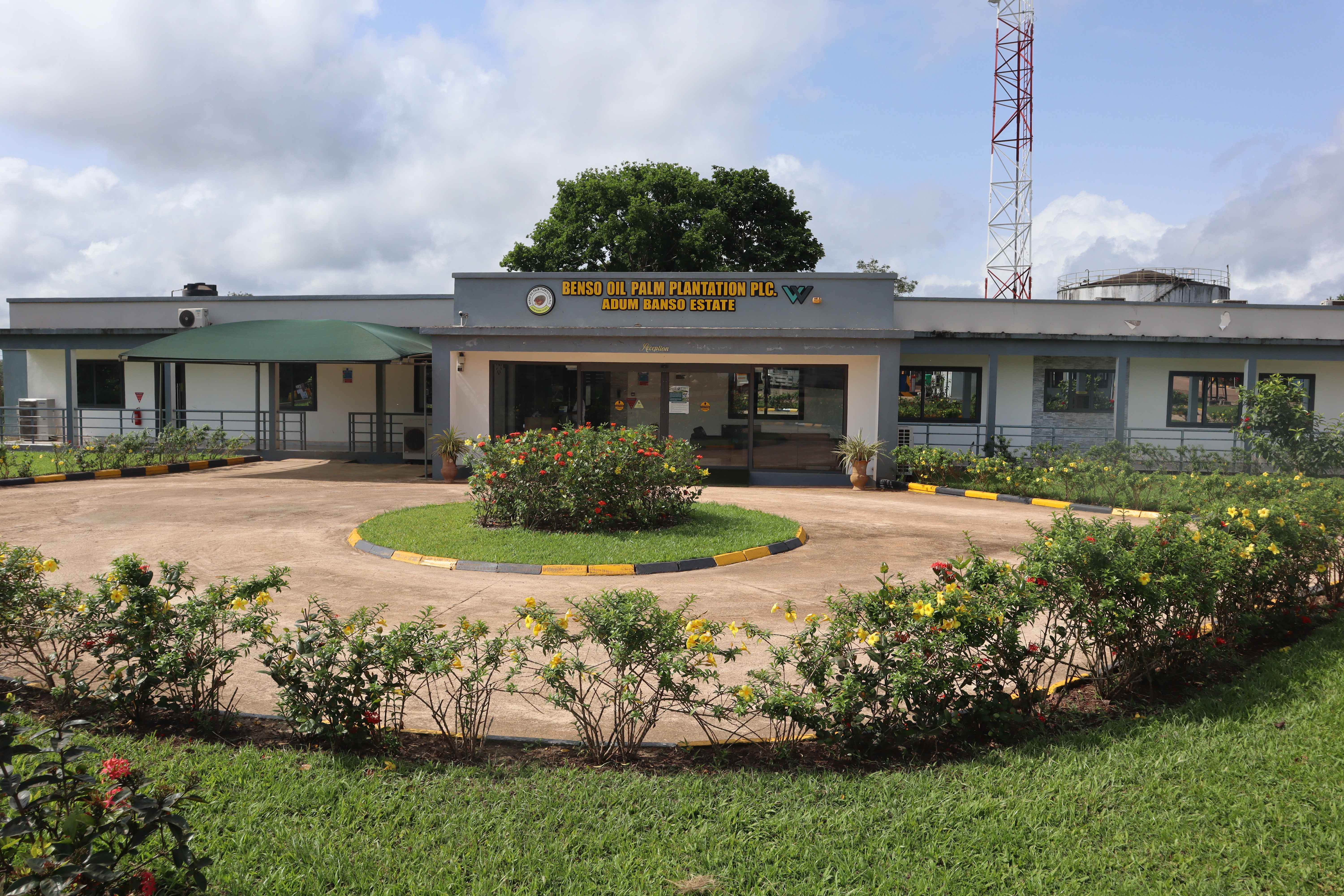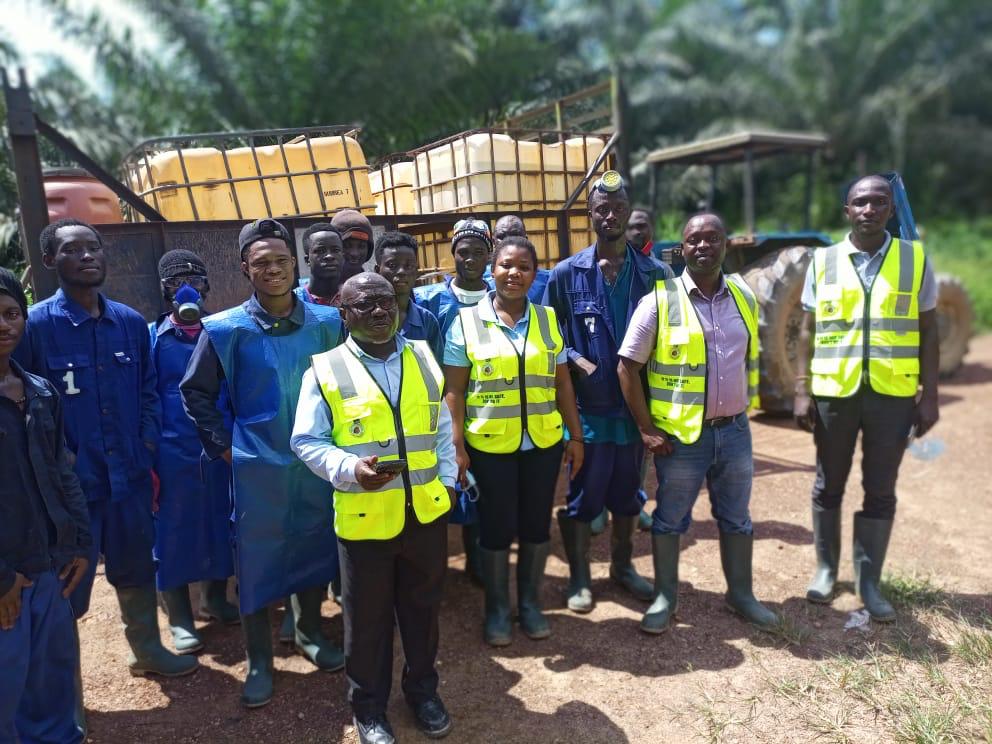Facilities
We have a Community School Complex from Crèche to the Junior High School with an ultra-modern computer laboratory and a well-stocked library.
Our National Health Insurance (NHIS) accredited Clinic has a Resident Medical Doctor and nurses, a medical laboratory and other facilities which serve employees, their dependents and the communities. BOPP has recreational facilities such as golf course, gym center, swimming pool, tennis court to entertain employees and visitors.
Employment
BOPP currently has 500 permanent employees with about 2,000 dependants – living in the company’s residential facilities. The Plantation engages 3rd-Party contractors who employ about 1,500 workers. Also, 438 community farmers/households and about 1,600 dependents benefit from our Smallholder Scheme..
Estate Security
The company employs its own security force and 3rd Party security to combat theft of fresh fruit bunches (FFB) and ensure security of employees and other properties. The company has built a police station and provides free housing on the estate for officers of the Ghana Police Service.
Local Communities
BOPP undertakes CSR projects in local communities prioritizing education, health, economic empowerment and infrastructure. We provide technical advice on Good Agricultural Practices, Best Management Practices and assists out-grower farmers within our catchment area and beyond.
Key Functional Areas
The company has four (4) key functional areas: Estate, Technical, Finance and Human Resource and each area has it own head being part of the MCM.

Estate - Plantation
Of the total concession of 6,799 hectares 4,738 hectares are mature oil palms which were planted between 1998 and 2016 while the first-generation palms planted between 1976 and 1991 have been replanted. There is also a 1,650-hectare smallholder scheme funded with aid money from the Agence Francaise De Development (AFD) which started in 1995. Each farmer holds a 4-hectare oil palm plantation. The Agricultural Development Bank (ADB) was the financial partner whilst BOPP is the technical partner and off-taker of the fruits, where BOPP provides all extension services including but not limited to Integrated Pest Management (IPM), manuring, weeding, roads and bridges maintenance. The scheme was implemented in four phases (from 1995 to 1998). Farmers were selected from the local communities. The scheme which has 438 farmers/households is successful and popular with the community and indeed has become a benchmark for other African countries intending to go into oil palm plantation development. The 500 hectares planted in the first phase (1995) was replanted in 2021.

Palm Oil Mill
BOPP oil palm mill was commissioned in November 1981 with a design capacity of 16 tonne per hour milling capacity and was upgraded to 20 tonne per hour milling capacity in 1992. After the take-over of the business by Wilmar as the majority shareholder in 2011, some major capitalization to the tune of about $2.1million was used to replace obsolete and under-sized equipment with up-to date equipment including cages transfer carriages, 9-bay fruit ramp, 80 tonner clarifying tank, an additional Alfa Laval Centrifuge machine and many more. The last upgrade phase was completed in year 2017 where over $3million was invested to increase the design capacity to 30 tonne per hour with the installation of a new 1MW steam turbine, 25 tonne per hour boiler and a third sterilizer. This further enhanced the utilization of cheap source of power using fibre and shell generated from the milling process as fuel for the boilers, a clear example of sustainable Agriculture by using waste products for power generation. The mill produces approximately 90% of its factory power consumption annually. The oil mill is capable of handling 150,000 metric tons of fresh fruit bunches per annum. The distribution of the total annual crop of FFB ranges from 5.3% in the lean month to 12.8% in the peak month. Annual production is currently over 23,000 metric tons palm oil and 6,000 metric tons palm kernel. The company sources its raw materials (FFBs) from its nucleus estate which is divided into two divisions, namely Ahinkrom and Edumasi.

Administration & Management Controls
The Company performs its functions through four administrative and operational departments – the Estate/Plantation, Technical, Finance, and Human Resource. The Company has well-established internal controls and risk management systems, which are well documented and regularly reviewed. This incorporates internal control procedures, which are designed to provide reasonable assurance that the assets are safeguarded and risks facing the business are being controlled to the barest minimum. The Company’s Board of Directors have also established a clear organizational structure, including delegation of appropriate authorities and reporting lines. The internal audit function of the parent company, Wilmar International, plays a key role in ensuring compliance, providing an objective view and continuing assessment of the effectiveness of the internal control systems in the business. The Company engages the services of an external auditing firm to conduct statutory audit.

Environmental, Health and Safety
Safety First! Safety Always
Benso Oil Palm Plantation considers safe operations as key in producing quality Crude Palm Oil (CPO) and Palm Kernel (PK). Hence, has Safety as one of its core values. Our goal is to send everyone home safely, every day. In BOPP, we are committed to providing a safe and healthy working environment for our people and stakeholders. We believe that all incidents and occupational illnesses are preventable, and we will work relentlessly to improve our safety performance towards zero incidents.
